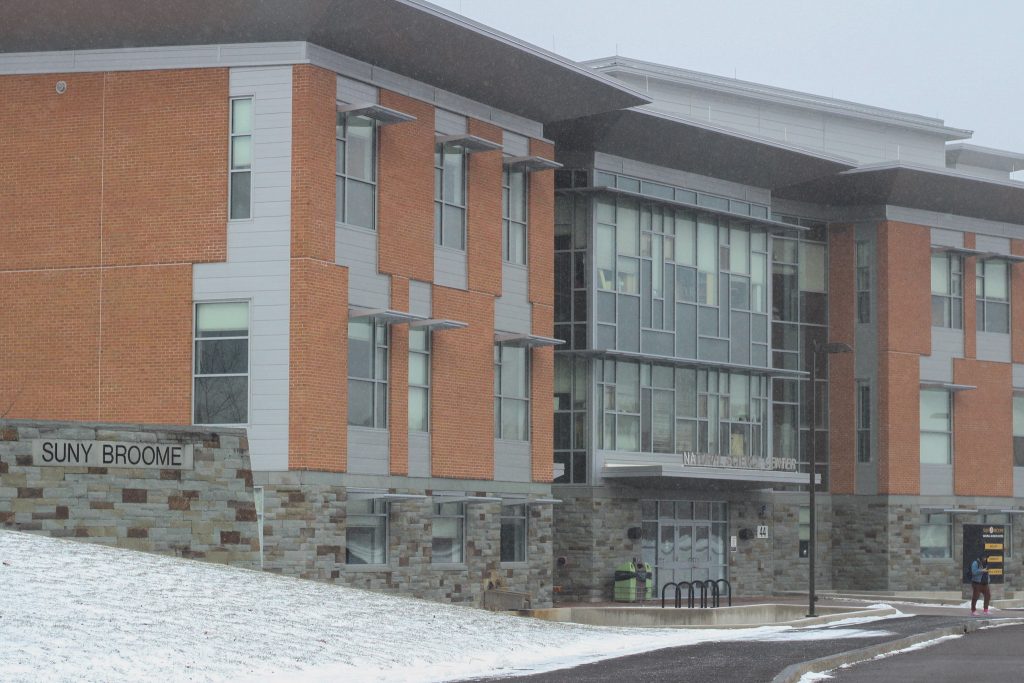Closer collaboration between SUNY Broome Community College (BCC) and Binghamton University was recently announced.
In BU President Harvey Stenger’s recent State of the University address, he discussed the years’ accomplishments and detailed a future partnership with BCC in connection with the Binghamton Advantage Program (BAP). The program extensions include three integration options with the goal of increasing enrollment for both BU and BCC.
Stenger described the main motivations behind the expansion, primarily focused around commuting and living space.
“What if we were to admit students into a BAP 2.0?” Stenger said during his State of the University address. “Where instead of going and living here, they lived there, take their courses there, enjoy all the student activities here. Now they have to take a bus in this direction for their activities. But stay there for their classes, as opposed to staying here for their activities and taking a bus there for classes, in BAP 1.0.”
Current students enrolled in the BAP program live on BU’s campus, but attend classes at BCC for one year. If the student maintains a GPA of 3.0, they are offered a guaranteed spot as a sophomore at BU. During his address, Stenger cited how a shrinking number of beds available for BAP students under the current model helped to motivate the expansion.
In an article published by WNBF News Radio, BCC President Kevin Drumm said that BCC will continue to “develop a plan to better integrate the school’s operations with [BU],” and described the three options for the integration.
The first includes that of a traditional BAP student who attends classes at BCC but lives on the Binghamton campus. The second is to have admitted BAP students both live and take classes on the BCC campus, Stenger explained, which would allow the students who live in the BCC residence halls to have amenities provided. The third option would be for students to live at home and not pay room and board, but still follow guidelines before admittance into BU.
With the help of these three options, the goal for next fall would be to grow BAP enrollment from 175 to 225, according to the agenda.
Stenger discussed the expansion in a Jan. 18 Professional Staff Senate meeting. BCC’s enrollment is down about 35 percent, Stenger noted, making the larger goal of the cooperation to increase full-time enrollment of students. Expanding the BAP Program will allow the University to accept the admission of over 27,000 students and increase enrollment at BCC.
Ryan Yarosh, senior director of media and public relations at BU, said the partnership aims to grow the existing BAP program.
“Our only partnership activity is to expand our BAP program, with the goal of helping their enrollment and our transfer student population,” Yarosh wrote.
Students across the campus voiced their own responses to the BAP expansion plan.
Ciara Bellidora, a sophomore majoring in psychology, said the expansion of the program will give more opportunities of admission for those who want to attend the University.
“I didn’t know that we had a program like this, but it sounds great,” Bellidora said. “ A lot of students struggle with academics and wish to attend [BU], so giving them more options where they can be admitted as a full-time student in the future is important.”
Hannah Machingo, a sophomore majoring in business administration, said the program offers recognition of work.
“I think this program allows for more inclusivity,” Machingo said. “With the new options and expansion of the program in the works, this helps recognize students’ potential.”



